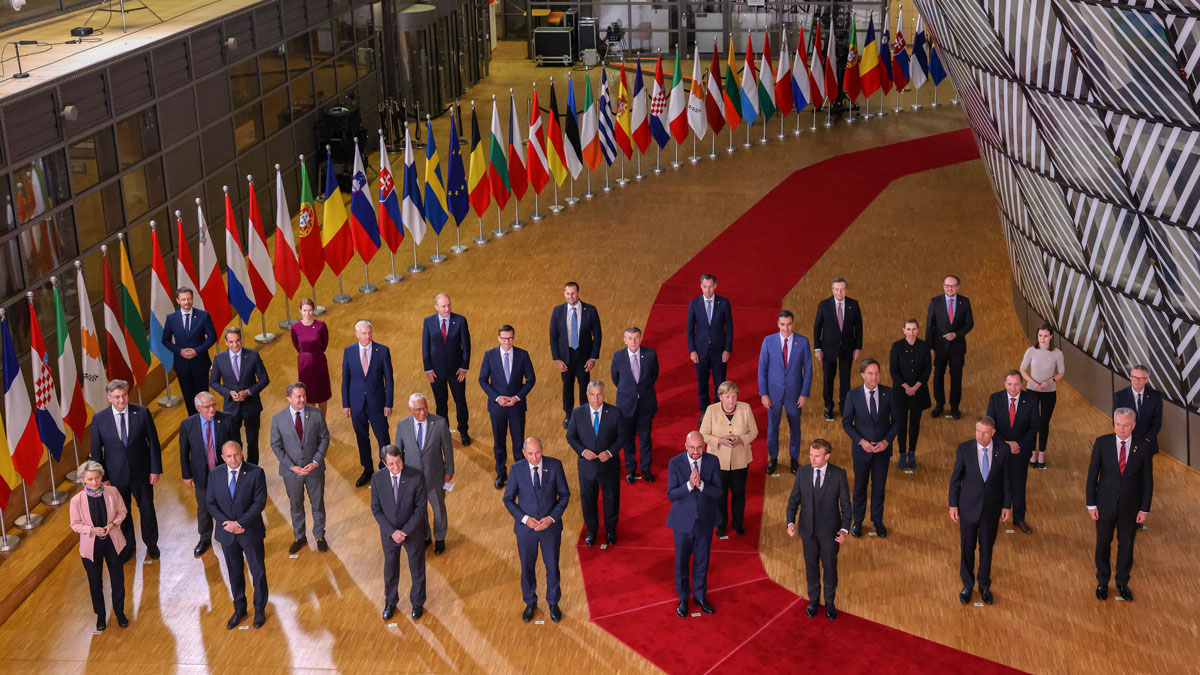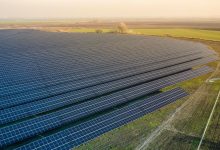EU Leaders’ Meeting in Brussels: European Council Conclusions on Recent Spike in Energy Prices
On 21 October, EU leaders met in Brussels to discuss COVID-19, energy prices, trade, and external relations. They also held a debate on the rule of law.
The European Council addressed the recent spike in energy prices and considered the impact of the price rises on citizens and businesses, especially the vulnerable citizens and SMEs, striving to recover from the COVID-19 pandemic.
The toolbox presented in the Commission Communication on tackling rising energy prices contains useful measures for both the short and the longer term.
The European Council invited:
- The Commission to study the functioning of the gas and electricity markets, as well as the EU ETS market, with the help of the European Securities and Markets Authority (ESMA). Subsequently, the Commission will assess whether certain trading behaviours require further regulatory action.
- The Member States and the Commission to urgently make the best use of the toolbox to provide short-term relief to the most vulnerable consumers and to support European companies, taking into account the diversity and specificity of situations of Member States.
- The Commission and the Council to swiftly consider medium and long-term measures that would contribute to energy at a price that is affordable for households and companies, increase the resilience of the EU’s energy system and the internal energy market, provide security of supply and support the transition to climate neutrality, taking into account the diversity and specificity of situations of Member States.
- The European Investment Bank to look into how to speed up investment in the energy transition, within its current capital headroom, with a view to reducing future disruption risks and meeting Europe’s global connectivity ambitions.
The extraordinary meeting of the TTE Council (Energy) on 26 October 2021 will take this work forward immediately. The European Council will keep the situation under review and revert to it in December.
European Electricity Executives’ Message on High Energy Prices
Electricity prices on European wholesale market recently reached record highs, triggering concerns and political debate across the Continent. For delivery in 2022, a price of 100€ per MWh has now been well exceeded.
The CEOs of the major European power sector utilities are convinced that a factual and nuanced discussion at European level helps address these concerns. In this regard they welcomed that the European Council discussed on 21st October how to best tackle the impact of rising power prices on customers from a European perspective.
The impact of soaring energy bills on consumers should not be underestimated. European Electricity Executives fully support the need to protect vulnerable citizens from peaks in energy prices to fight energy/fuel poverty and ensure a just transition for all.
To manage this situation, the signatories of the message however strongly caution against short sighted political measures which go against the legal framework of the EU internal energy market. They endanger the energy transition objectives of the Green Deal by damaging investors’ confidence in the long term. It is critical that any Member State’s specific measure to tackle the effects of high prices is fully compliant with existing EU legislation on the Internal Market for Electricity, especially Article 3 of the Regulation and Article 5 of the European Directive.
“The current situation has been caused by increases in the price of fossil fuels and not by the energy transition itself. On the contrary, the energy transition, which would drastically reduce the use of fossil fuels, is progressing too slowly. It must encourage us to double down on decarbonisation efforts which will decrease the EU’s reliance on fossil fuels as soon as possible. This is the best way to avoid repeated occurrences of similar events in the future,” as mentioned in the letter.
Notwithstanding the debates on the functioning of power markets, the current wholesale price reflects the supply and demand equilibrium (e.g., high prices of gas which is used in the last power plants needed to match electricity demand.).
“We strongly believe that for short-term optimization, the current power market design based on competitive marginal pricing, ensures secure and cost-effective energy supplies to the EU industry and individual citizens. The continued integration of markets – across all timeframes, countries, energy sources and technologies – will allow us to better absorb price shocks at pan-European scale. We therefore welcome the European Commission’s initiative to work on toolbox proposals and urge you, the Member States, to focus any short-term political reactions on mitigating the impact of temporary price fluctuations for consumers to ensure that all citizens can enjoy the benefits of the energy transition (e.g., by alleviating electricity bills from unbalanced taxation levels).”
There is however an obvious need to consider long term price signals enablers with climate friendly policy. In the long-term, the CEOs of the major European power sector utilities therefore call on EU Member States to:
- Structurally reduce taxes and levies on electricity bills to reduce pressure on retail power prices.
Currently, taxes and levies represent approximately 41% of the electricity bill, an increase of 29% over the past decade. The taxes consumers pay on electricity in most countries are higher than the taxes they pay on other forms of energy. This can be addressed through the Energy Taxation Directive review. The present version is obviously outdated, it was designed in the last century and adopted in 2003.
- Fully implement Clean Energy Package provisions to ensure further market integration and flexible consumption for all.
Continue to put in place and deepen competitive integrated EU electricity markets which provide market participants with hedging opportunities to deliver a stable and cost-conscious supply of energy to the industry and individual consumers. Unlocking demand side flexibility, notably by using the energy of electric cars batteries, will allow consumers to benefit from price fluctuations by adapting their consumption accordingly as well as improving security of supply alike.
- Accelerate the clean energy transition with deployment of RES & carbon-neutral sources to hedge against volatile fossil prices.
Across Europe we must reduce our dependency on imported gases and associated exposure to volatile gas prices. We fully support the EC ambition to reduce emissions by at least 55% by 2030. This can be achieved by ever more deployment of renewable and all carbon-neutral energy sources, along with efficient transmission & distribution grids, energy storage and other forms of flexibility. For this reason, we should eliminate current roadblocks especially in terms of permitting.
- Accelerate energy efficiency measures as foreseen by the FF55 package The cheapest energy is the energy that we do not use, which is why consumers should be supported in improving the energy efficiency of their homes. Efficiency policies should prioritize the socially more vulnerable parts of society as the most effective strategy to fight energy/fuel poverty.
- Improve the investment environment by enhancing long-term price signals.
While the current market design ensures an efficient allocation of scarce resources in the short term, it will not drive the needed investments to achieve carbon neutrality by 2050 while ensuring security of supply. Where needed, we therefore call to foster additional risk-hedging instruments on all timeframes enabling investments in carbon-neutral generation and energy transition technologies. Moreover, we draw your attention to the necessary investments that must be made in the grids to enable the orderly deployment of these necessary low carbon resources.
We stand ready to engage actively and constructively on the European level to deliver on our commitments and play our part in enabling a thriving, competitive climate-neutral European economy.







